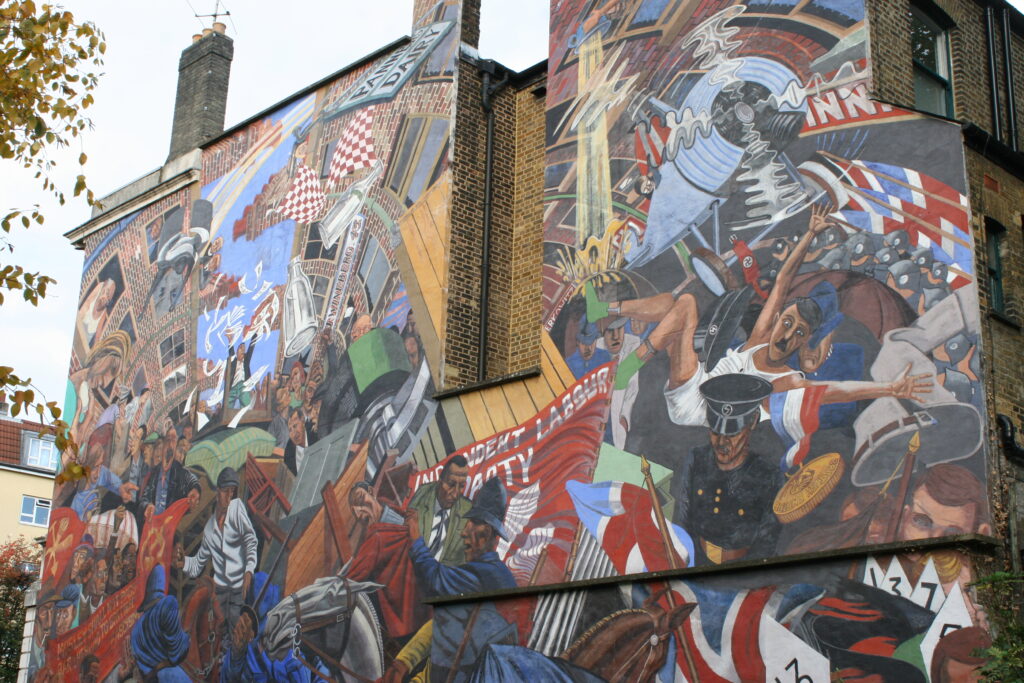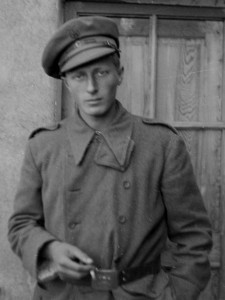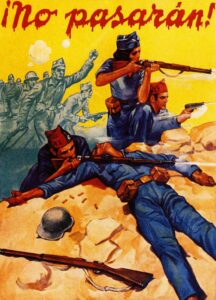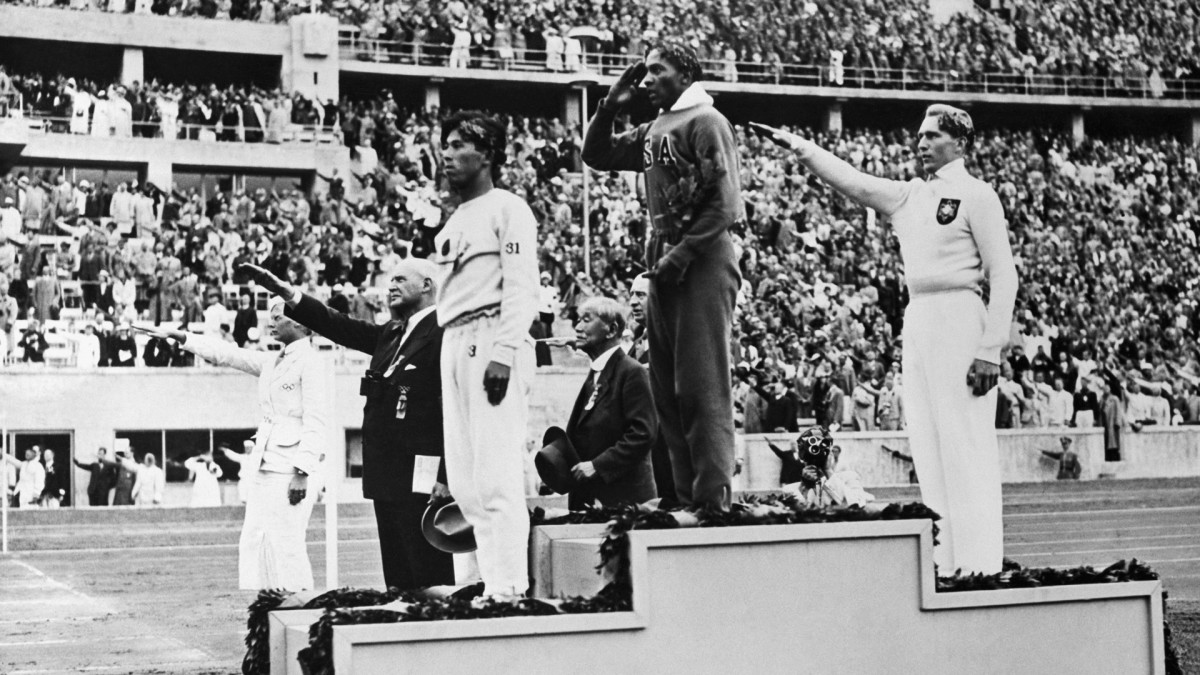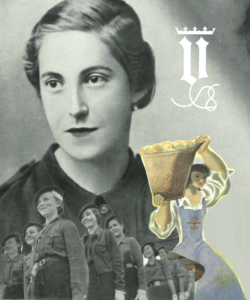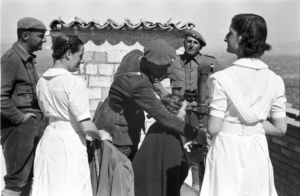George Watt Award Recognizes New Generation of Students
This year, the jury of the Watt Essay contest recognized a group of excellent papers written by high school, undergraduate, and graduate students from around the world.
Even though the pandemic continues to affect education and restrict access to archives and libraries, the next generation of scholars of the Spanish Civil War and anti-fascism is producing creative and innovative studies that break new grounds of research. The Watt jury was impressed by how many students are re-examining the role of women, gender, and race in the Spanish Civil War and how they place the fight against fascism in Spain as a central chapter in the longer story of the anti-fascist movement.
There were two recipients of the pre-collegiate award. Justin Murdock of Stuyvesant High School in New York wrote about propaganda from competing political interests in Spain in his wonderful essay “The Omnipresent Weapon.” Justin’s essay came out of a class on the Spanish Civil War taught by Mr. David Hanna. The second recipient of the award, Bismah Shaikh, from Houston, Texas wrote a taut, well-measured poem about the heroics of Jesse Owens at the 1936 Berlin Olympics. It was there where Owens won four gold medals in an event scripted to show the superiority of Aryans. As Bismah shows, this was an early anti-fascist action and was part of Owens overcoming racism and classism in the United States as well.
The undergraduate and graduate submissions showed cutting-edge research in exceptional essays and chapters of dissertations. Two undergraduate essays stood out among a large and impressive group of submissions. Morgan Davis of New York University presents a complex study of the magazine Y Revista de la Mujer, a publication of the Women’s Section of the Falange in an excerpt of her senior honor’s thesis. In “Female Leadership in Francoist Spain: National-Catholic Restrictions and Female Solidarity in the Sección Femenina’s Y Revista de la Mujer,” Davis examines how the publication presented a retrograde idea of femininity but also shows how the magazine presented a safe space for women, which was relatively progressive for Francoist Spain. Samuel Orloff of the University of Pennsylvania also submitted a section of his senior honor’s thesis. In the very well-researched paper “The Initial Media Responses to the Battle of Cable Street,” Orloff describes the lasting political and cultural significance of the 1936 Battle for Cable Street in which Britain’s Union of Fascists tried to march through the largely Jewish section of East End London and were stopped by local anti-Fascists.
Graduate students from both sides of the Atlantic also submitted chapters of their theses, many of them based on exciting archival research. The pool was so deep that the jury decided to award two prizes. Kevin Antonio Aguilar of University of California-San Diego’s “Ambassadors of the Revolution: Anarchist Diplomacy during the Spanish Civil War” presents what one member of the jury called “uncharted territory” in the history of the Spanish Civil War, specifically Aguilar’s study of the relationship among Anarchists, the Mexican government, and the exile community. The relationship was undermined in part by how Spanish radicals brought pre-conceived notions of race and class in Mexico. Based on research in archives across Europe and in Mexico, Aguilar’s subtle analysis of the balance of diplomatic relations makes a wonderful read. Our second recipient is Katherina Seibert of the University of Vienna, who explores how the Military Health Service under Franco tried to control nurses under its control. Seibert challenges the idea that Nationalist nurses acted conservatively. She shows that female officials overseeing Nationalist nurses had to negotiate the reality of romantic interludes by nurses with Catholic morality. Based on excellent archival research, Seibert shows that Nationalist nurses, away from the eyes of their family, did not always adhere to Nationalist ideology.
The jury for the Watt award was comprised of Angela Giral (Columbia University), Joshua Goode (Claremont Graduate University), Gina Herrmann (University of Oregon), Jo Labanyi (New York University) and Aaron Retish (Wayne State University). The George Watt Memorial Essay award honors the memory of Abraham Lincoln Brigade veteran George Watt (1914-1994), a social worker, writer, and lifelong activist central to the creation of ALBA.
Pre-collegiate awards
Justin Murdock, “The Omnipresent Weapon”
No Pasarán! Bombs rained upon the Iberian Peninsula – whether literal ones from the piercing Condor Legion or metaphorical as propaganda posters plastered streets. From Barcelona to Bilbao, both were incessant throughout the Spanish Civil War. The Spanish people witnessed the first of many things: a vast international conflict succeeding the Great War, a major political ideological clash on the European stage, and the most infamous civilian bombings to date. With all that came the aggressive use of a deadly, increasingly popular weapon: propaganda. “The Omnipresent Weapon” makes a thorough examination of the propaganda used by the two Spanish factions, the Republicans and Nationalists, by analyzing the intentions and artistic decisions made in the posters. Through such, considering modern political corruption and strife, readers may reflect upon the true gravity of propaganda usage upon Spanish society in the civil war and global conflicts to come. Read the full text here.
Bismah Shaikh, “The Weight of Actions”
This poem is a tribute to the legendary Jesse Owens who is a role model for many people even today. He conquered injustice and racism with pure grit and perseverance, and this is primarily what I want to highlight with my poem. His actions are a beacon of hope for all those to come since he stood up against the thousands that were hell bent on bringing him down. If this incident emphasizes the extent to which racial injustice goes back into history, then Owens’s feat signifies that anything is possible— especially victory against discrimination.
The Weight of Actions
Big word going around:
The Olympics.
Four medals whose rattle drowned
The jeers of these Critics,
Stayed right on track,
Never strayed too far-right,
Bolted straight through the finish line,
Left the ethnocentric Reich unaligned.
Boy raised in Alabama,
Derailed the Fascist drama,
Outran the racists,
Usurped the classists,
Monochromatically televised,
Person of color outshone worldwide.
“No words, just run straight ahead,”
Jesse Owens corrected the misled.
Undergraduate Awards
Y Revista de la Mujer, first published as Y Revista de la Mujer Nacional-Sindicalista and later as Y Revista Nacional-Sindicalista de la Mujer, was one of several magazines published by the Women’s Section (Sección Femenina) of the Falange. It was published for the first time in February 1938, during the Spanish Civil War, and for the last time in 1946. The magazine was printed in San Sebastian, in the Basque region of Spain, in 1938 under Nationalist control. In reading the issues of Y Revista de la Mujer, I have been attentive to the magazine’s role in enforcing retrograde notions of femininity, but I have also been open to recognizing the existence in its pages of features that I was not expecting to find, as the magazine offered the opportunity for women to create a community in print together, opening up some space for differences among female readers under the regime. In my conclusion, I ask how these unexpected findings may affect our understanding of the Sección Femenina. Read full text.
Samuel Orloff, “Initial Media Responses to the Battle of Cable Street”
In the history of interwar British anti-fascism, the 4 October 1936 Battle of Cable Street stands out as an especially significant event. The 1936 clash transpired after anti-fascists descended on the streets of London’s East End to block Oswald Mosley’s British Union of Fascists (BUF) from provocatively marching through the heavily Jewish district. Some scholars have suggested that the importance of the event was overstated. By looking to the press coverage of the Battle of Cable Street that was published in ideologically diverse newspapers, it is clear that the event was understood by contemporary observers to be of great importance.
The media responses to the clashes of 4 October also highlight the extent to which the Battle of Cable Street took place in a broader domestic and international context. By situating the events in the East End alongside contemporary events in Britain and Continental Europe, it is possible to identify continuities with the anti-fascism of the early 1930s. Finally, the often ideologically motivated differences in the representation of the Battle of Cable Street in the various newspapers demonstrates the emergence of incipient memories in the immediate aftermath of the incident. As the clashes at Cable Street drifted into the realm of historical memory, these contrasting narratives solidified into major differences in the interpretation of interwar anti-fascism. Read full text.
Graduate Award
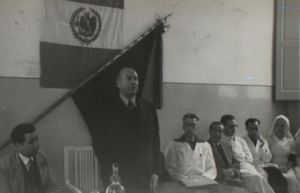
Mexican ambassador to Spain Adalberto Tejeda visiting the Instituto de Puericultura y Maternología “Luisa Michel” in Barcelona, April 27, 1938.
Kevin Antonio Aguilar “Ambassadors of the Revolution: Anarchist Diplomacy during the Spanish Civil War”
This chapter of my dissertation looks at Spanish anarchists’ efforts to build formal and informal ties with the Mexican Left and the administration of President Lázaro Cárdenas during the Spanish Civil War. Along with being one of the only countries to provide financial aid and arms to Loyalist forces during the Civil War, Mexico was the sole country to support factions seeking to initiate a parallel social revolution during the conflict. I look at how representatives of the Confederación Nacional del Trabajo (CNT) and the Federación Anarquista Ibérica (FAI) solidified these alliances through cultural events, the radical printed press, and speaking tours, where they professed the strong racial and class solidarities between both countries laboring classes.
Yet as this chapter demonstrates, the task of fostering an anti-colonial and internationalist worldview proved far more complicated than mere salutations to global social revolution. While Spanish radicals lambasted the inequalities perpetuated by centuries of colonialism, they also faced criticism due to their racialized interpretations of Mexican society and class conflict. Despite such obstacles, the persistence of Spanish anarchist intermediaries to reconcile such contradictions provides insight into the difficult and complicated efforts made to sustain relations between the two country’s revolutionary movements. Read full text.
Katherina Seibert, “’I married off a paramedic.’ Negotiating Francoism in the frontline hospital”
Establishing the image of Spain returning to be a society of order, honor and complementary gender relations was a complex negotiation during the Francoist nation-building. This process started already during the Civil War which disrupted Spain’s democratic experience of the interwar period. To create the Francoist society a spectrum of integrative measures was applied which ranged from violence, repression, and social and physical exclusion against supporters of the Second Republic, to the distribution of privileges, positions of power, and access to wealth for Franco’s supporters. In this paper, I examine the Military Health Service of the Francoist army as an arena to study the beginnings of these negotiations which were set during the Civil War. As an institution where men worked with women, the Military Health Service turned into a social space where several levels of social relations were renegotiated, like the distribution of labor, gender relations, gendered relationships of power. In the military hospitals and frontline sickbays, discrepancies surfaced between the official propaganda images and the way how the medical staff lived up to it. Parting from a paradigmatic letter from the frontlines about inappropriate relationships among military hospital staff I analyze how Francoist discourses on honor and order were defied by the doctors, nurses, and auxiliaries; how sexuality challenged the Francoist project of statehood; and how the armed forces reluctantly opened their gates for the presence of female staff. Read full text.

